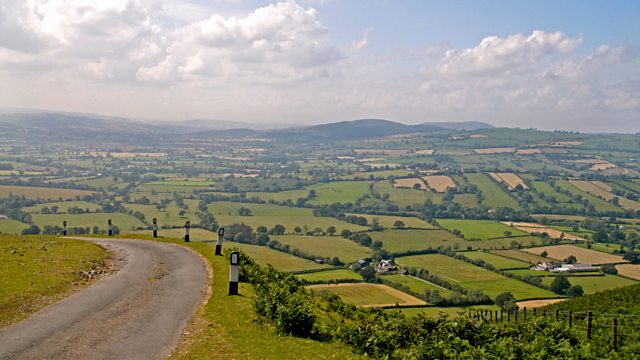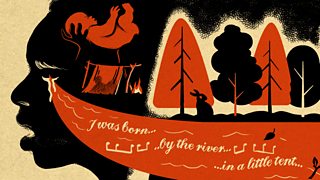A Shropshire Lad
Exploring the lasting emotional impact of George Butterworth's rhapsody inspired by the Great War. From 2014.
"Into my heart an air that kills
From yon far country blows:
What are those blue remembered hills,
What spires, what farms are those?
That is the land of lost content,
I see it shining plain,
The happy highways where I went
And cannot come again."
So wrote the poet AE Housman lamenting the loss of his brother in the Boer war in his epic poem A Shropshire Lad.
It harks back to a simple idyllic rural way of life that is forever changed at the end of the 19th century as hundreds of country boys go off to fight and never return. George Butterworth adapted his words to music in 1913 just before the outbreak of the Great War.
We hear from those whose lives continue to be touched by the loss of so many young men between 1914 and 1918. Broadcaster Sybil Ruscoe recalls visiting her Great Uncle's grave in a military cemetery in France with Butterworth's Rhapsody as the soundtrack to her journey.
A concert at Bromsgrove School in Worcestershire where Housman was a pupil remembers the former schoolboys killed in action, and singer Steve Knightley discusses and performs his adaptation of The Lads In Their Hundreds.
The Bishop of Woolwich connects his love of the countryside and Butterworth's music with his father's battered copy of Housman's poems which comforted him while held captive in Singapore during the Second World War.
Contributors:
James McKelvey
Phillip Bowen
Tish Farrell
Michael Ipgrave
Steve Knightley
Stephen Johnson
Sybil Ruscoe
Sam Adamson
Series about pieces of music with a powerful emotional impact
Producer: Maggie Ayre
First broadcast on Βι¶ΉΤΌΕΔ Radio 4 in November 2014.
Last on
More episodes
Previous
You are at the first episode
Broadcasts
- Tue 11 Nov 2014 11:30Βι¶ΉΤΌΕΔ Radio 4
- Sat 15 Nov 2014 15:30Βι¶ΉΤΌΕΔ Radio 4
- Fri 18 Aug 2017 18:30Βι¶ΉΤΌΕΔ Radio 4 Extra
- Sat 19 Aug 2017 00:30Βι¶ΉΤΌΕΔ Radio 4 Extra
- Tue 25 Jan 2022 18:30Βι¶ΉΤΌΕΔ Radio 4 Extra
- Wed 26 Jan 2022 00:30Βι¶ΉΤΌΕΔ Radio 4 Extra
- Fri 8 Nov 2024 10:00Βι¶ΉΤΌΕΔ Radio 4 Extra
- Fri 8 Nov 2024 16:00Βι¶ΉΤΌΕΔ Radio 4 Extra
- Sat 9 Nov 2024 00:00Βι¶ΉΤΌΕΔ Radio 4 Extra
Why Sam Cooke's 'A Change Is Gonna Come' became a Civil Rights anthem
Podcast
-
![]()
Soul Music
Series about pieces of music with a powerful emotional impact



